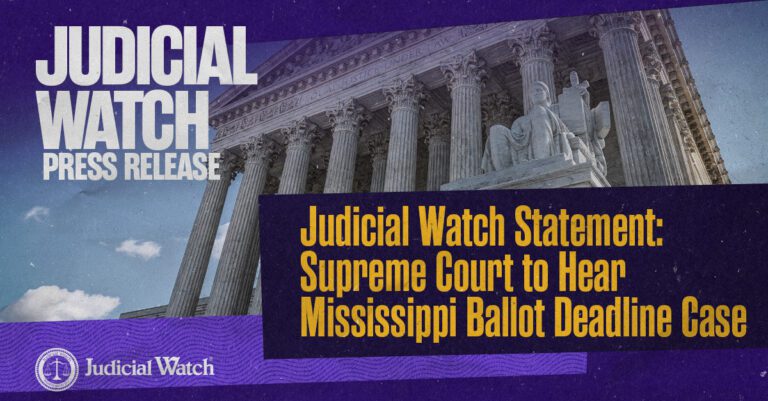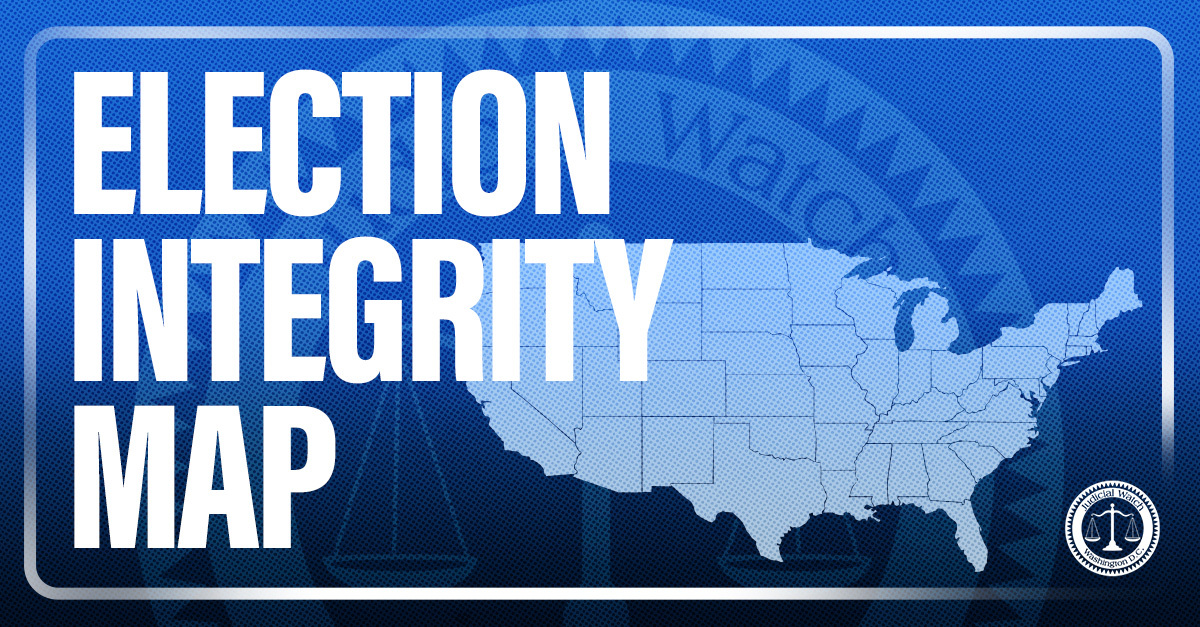
Clinton Emails with Petraeus Reveal Her ‘BlackBerry Blues;’ Clinton Tells Then-CENTCOM Commander to Use Her ‘Personal Email Address’

(Washington, DC) – Judicial Watch today released new State Department documents containing email correspondence between former Secretary of State Hillary Clinton and Gen. David Petraeus, in which she had what she termed “blackberry blues” over her inability to use her BlackBerry inside her secure office. The FBI recovered these new emails from those not turned over by Hillary Clinton. These emails are government documents and not personal emails, as Clinton claims in defending her decision to not turn over 30,000 emails sent or received by her as secretary of state. The emails also show she knew about the security issues of her BlackBerry use (and yet denied recalling anything about it or refused to answer questions).
In the newly obtained email exchanges, Clinton also told Petraeus, “If there is ever anything you need or want me to know, pls use this personal email address” – [email protected] – when corresponding with her. Petraeus, at the time of the email from Clinton, was the Commander of the United States Central Command, overseeing U.S. military efforts in critical areas, stretching from Northeast Africa across the Middle East to Central and South Asia, and including Iraq, Iran, Afghanistan, Pakistan, and Egypt.
The new documents were among the nearly 15,000 Clinton emails discovered by the FBI, and obtained in response to a court order in a Freedom of Information Act (FOIA) lawsuit for State Department records about Clinton’s separate email system (Judicial Watch, Inc. v. U.S. Department of State (No. 1:15-cv-00689)).
On January 28, 2008, only one week after becoming secretary of state, Clinton sent an email to Petraeus from her non-state.gov email account apologizing for her “tardy” response to his earlier email and blaming it on what she termed “blackberry blues”:
From: H [mailto:[email protected]]
Sent: Wednesday, January 28, 2009 9:33 PM
To: Petraeus, David H. GEN USA
Subject: Re: Follow up
David – Sorry to be so tardy in responding. I’ve had blackberry blues. I can’t use mine all day long since my whole office is a SCIF [Sensitive Compartmented Information Facility]. I don’t yet have a computer and I had to change my address and lost some of my traffic.
(The State Department represented to a federal court that Hillary Clinton did not have a State Department computer.)
Shortly before taking office, Clinton emailed Petraeus asking that he use only her personal email account when contacting her. At the time, Petraeus was the Commander of the United States Central Command:
From: [email protected]
Sent: Saturday, January 10, 2009 3:57 PM
To: Petraeus, David H. GEN USA
Subject: Follow up
Dear Dave,
Thanks for giving me so much of your time the last two nights. I appreciated our conversations and enjoyed the chance to see you and Richard becoming acquainted. I’m looking forward to working w you both. If there is ever anything you need or want me to know, pls use this personal email address. All the best, Hillary.
Judicial Watch specifically asked about Clinton’s BlackBerry use as part of the twenty-five questions submitted on August 30 to Clinton as ordered by U.S. District Court Judge Emmet G. Sullivan:
On March 6, 2009, Assistant Secretary of State for Diplomatic Security Eric J. Boswell wrote in an Information Memo to your Chief of Staff, Cheryl Mills, that he “cannot stress too strongly, however, that any unclassified BlackBerry is highly vulnerable in any setting to remotely and covertly monitoring conversations, retrieving email, and exploiting calendars.” A March 11, 2009 email states that, in a management meeting with the assistant secretaries, you approached Assistant Secretary Boswell and mentioned that you had read the “IM” and that you “get it.” Did you review the March 6, 2009 Information Memo, and, if so, why did you continue using an unclassified BlackBerry to access your clintonemail.com email account to conduct official State Department business? Copies of the March 6, 2009 Information Memo and March 11, 2009 email are attached as Exhibit A for your review.
Response: Secretary Clinton objects to Interrogatory No. 14 as seeking information outside the scope of the permitted discovery in this case. The Court’s May 4, 2016 Order provides that Plaintiff is not entitled to discovery on the subject of “cybersecurity issues.” Dkt. #73, at 13.
In a November 13, 2010 email exchange with Huma Abedin about problems with your clintonemail.com email account, you wrote to Ms. Abedin, in response to her suggestion that you use a State Department email account or release your email address to the Department, “Let’s get a separate address or device.” Why did you continue using your clintonemail.com email account to conduct official State Department business after agreeing on November 13, 2010 to “get a separate address or device?” Include in your answer whether by “address” you meant an official State Department email account (i.e., a “state.gov” account) and by “device” you meant a State Department-issued BlackBerry. A copy of the November 13, 2010 email exchange with Ms. Abedin is attached as Exhibit B for your review.
Response: Secretary Clinton recalls that her November 13, 2010 e-mail exchange with Huma Abedin attached as Exhibit B to Plaintiff’s Interrogatories was triggered by a problem with the State Department’s telephone system. When Secretary Clinton wrote, “This is not a good system,” she was referring to the way in which the State Department would notify her of telephone calls. Secretary Clinton does not recall what precisely she meant by the words “address” or “device.” To the best of her recollection, she meant that she was willing to use a State Department e-mail account or device if it would resolve the problems with receiving telephone calls, so long as her personal e-mails with family and friends would not be accessible to the State Department. Following this e-mail exchange, the State Department changed the way in which it notified Secretary Clinton of telephone calls, resolving the problem that triggered this e-mail.
Email exchanges among your top aides and assistants in August 30, 2011 discuss providing you with a State Department-issued BlackBerry or State Department email address. In the course of these discussions, State Department Executive Secretary Stephen Mull wrote, “[W]e are working to provide the Secretary per her request a Department issued BlackBerry to replace her personal unit which is malfunctioning (possibly because of her personal email server is down). We will prepare two versions for her to use – one with an operating State Department email account (which would mask her identity, but which would also be subject to FOIA requests).” Similarly, John Bentel, the Director of Information and Records Management in the Executive Secretariat, wrote, “You should be aware that any email would go through the Department’s infrastructure and [be] subject to FOIA searches.” Did you request a State-Department issued Blackberry or a State Department email account in or around August 2011, and, if so, why did you continue using your personal device and clintonemail.com email account to conduct official State Department business instead of replacing your device and account with a State Department-issued BlackBerry or a State Department email account? Include in your answer whether the fact that a State Department-issued BlackBerry or a State Department email address would be subject to FOIA affected your decision. Copies of the email exchanges are attached as Exhibit C for your review.
Response: Secretary Clinton does not recall requesting a State Department-issued Blackberry or a Department e-mail account in or around August 2011.
In December 2015, Judicial Watch released documents it obtained, as result of a federal court order, containing more than 50 State Department internal emails from 2009 and 2011 warning of serious security concerns involving the use by then-Secretary of State Hillary Clinton and her staff of “highly vulnerable” BlackBerrys in the executive offices of the Foggy Bottom headquarters. The discussion included a March 2, 2009, internal memorandum from Assistant Secretary for Diplomatic Security Eric Boswell in which he advised Clinton and her Chief of Staff Cheryl Mills of “the vulnerabilities and risks associated with the use of BlackBerrys in Mahogany Row [seventh floor executive offices] considerably outweigh their convenience.” Testimony by Cheryl Mills in separate Judicial Watch litigation suggests Clinton used her BlackBerry in her office’s Sensitive Compartmented Information Facility (SCIF), despite security rules prohibiting the use of such devices in secure areas.
“These new emails show the truth that the separate email system was never a matter of ‘convenience’ for Mrs. Clinton. She wanted to hide her emails from the American people. It’s now clear why she deleted or withheld so many and why Mrs. Clinton didn’t recall or declined to answer questions about her email security,” said Judicial Watch President Tom Fitton. “And her request to Petraeus while he was the Commander of the United States Central Command to communicate with her solely at her unsecure email address shows Hillary Clinton’s willful negligence in handling national defense information.”
###

















